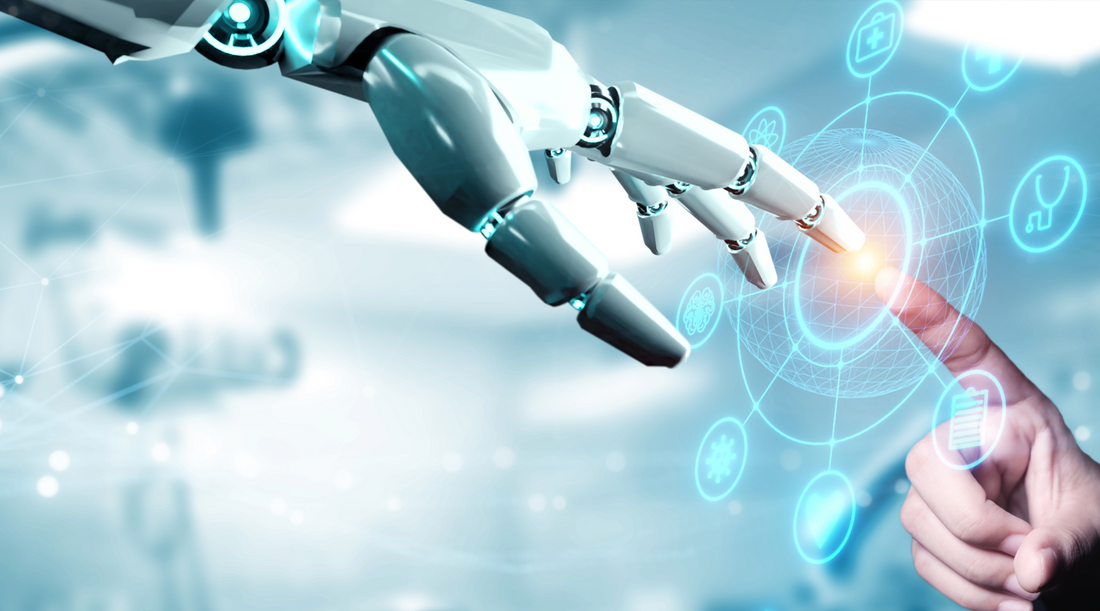Artificial Intelligence (AI) has taken the world by storm, touching nearly every industry and reshaping how we live and work. One area where AI’s influence is particularly profound is content creation. From automating writing tasks to generating artwork and videos, AI is changing how we produce, consume, and interact with content. But how exactly is AI impacting content creation, and what does this mean for creators and consumers?
Let’s dive into the evolving landscape of AI in content creation and explore its benefits, challenges, and future potential.
1. Automating Written Content
One of the most prominent uses of AI in content creation is automating written tasks. AI-powered tools like OpenAI’s GPT (the technology behind ChatGPT), Grammarly, and Jasper are enabling content creators to generate high-quality text faster than ever. These tools can write blog posts, product descriptions, social media captions, and even entire news articles with minimal human intervention.
Advantages of AI Writing Tools:
- Speed and Efficiency: AI tools can generate drafts in seconds, allowing writers to focus on editing and refining.
- Cost-Effectiveness: Businesses can create more content in less time, reducing the need for large content teams.
- Customization: AI can tailor content for specific audiences by analyzing data and adapting tone, style, and format.
However, while AI-generated content is efficient, it’s not without limitations. The creative nuances of human writing—such as emotional depth, storytelling, and humor—are still challenging for AI to fully replicate.

2. Enhancing Creativity with AI
Beyond automating tasks, AI is also enhancing creativity by providing content creators with powerful tools to elevate their work. For instance, AI-generated art, videos, and music have become more sophisticated, allowing creators to explore new mediums and styles.
Key AI Tools Enhancing Creativity:
- DALL·E and MidJourney: Tools that generate stunning images from text descriptions, helping artists bring their visions to life.
- Deepfake Technology: Allows for the creation of hyper-realistic videos, which can be used for both entertainment and practical purposes like virtual influencers or marketing campaigns.
- AI-Assisted Music Creation: AI platforms like Amper Music help musicians compose tracks by analyzing beats, melodies, and trends.
These AI-driven tools are pushing the boundaries of creativity, giving creators new ways to experiment and innovate. The accessibility of these tools means that anyone—from beginners to professionals—can use them to create visually stunning or musically rich content.
3. Personalization at Scale
One of the most exciting benefits AI brings to content creation is the ability to personalize content at scale. By analyzing user data, AI algorithms can determine what type of content resonates with specific audiences, enabling creators to tailor their messaging and format.
How AI Personalizes Content:
- Recommendation Engines: Platforms like YouTube, Netflix, and Spotify use AI to recommend content based on user preferences, driving engagement.
- Dynamic Ads and Content: AI can automatically adjust the language, imagery, and call-to-action in marketing materials to align with a user’s behavior and interests.
- Content Curation: AI helps businesses curate personalized newsletters or news feeds that match individual tastes, ensuring content relevance.
This level of personalization is invaluable for marketers, media outlets, and businesses looking to build deeper connections with their audiences.
4. Overcoming Language Barriers
Another exciting frontier in AI content creation is its ability to bridge language gaps. Translation tools powered by AI, such as Google Translate and DeepL, are becoming more accurate and context-aware, enabling creators to reach global audiences with minimal effort.
AI-Powered Language Tools:
- Natural Language Processing (NLP): Helps break down language barriers by understanding context, slang, and cultural nuances better than ever before.
- Automated Transcriptions and Subtitles: AI can automatically generate transcriptions and captions for videos, increasing accessibility and improving user experience.
This capability makes content accessible to non-native speakers and opens up opportunities for creators to expand their reach on a global scale.
5. Ethical Concerns and Challenges
Despite its benefits, the rise of AI in content creation raises ethical questions. As AI-generated content becomes more sophisticated, concerns about originality, authorship, and misinformation are growing. For example, deepfake videos—while impressive—can be used maliciously to spread false information or impersonate individuals.
Challenges and Ethical Considerations:
- Plagiarism and Authenticity: AI tools that automate writing and art creation may blur the line between original work and AI-generated content, raising concerns about intellectual property.
- Misinformation: AI’s ability to create highly realistic but false images, videos, and news can lead to the spread of misinformation, making it harder to distinguish fact from fiction.
- Job Displacement: As AI takes over more routine content creation tasks, there is concern that human creators could be displaced in certain industries.
To address these challenges, companies and governments are working on establishing guidelines and ethical standards for AI use in content creation.
6. The Future of AI and Content Creation
Looking ahead, AI’s role in content creation will only continue to grow. As the technology becomes more sophisticated, we can expect to see even more seamless integration of AI in the creative process. AI will likely become a collaborator rather than a competitor, helping human creators streamline workflows, enhance creativity, and deliver more engaging content.
What to Expect in the Future:
- Collaborative AI Tools: AI tools that work hand-in-hand with human creators to brainstorm ideas, generate content, and fine-tune the final product.
- Advanced Content Analysis: AI capable of analyzing trends, emotional reactions, and audience behavior to provide deeper insights for content creators.
- AI-Driven Storytelling: We may see AI-generated content that is interactive, allowing users to participate in and shape the narrative.
Ultimately, AI will become a powerful tool for creators, allowing them to focus on the most meaningful and creative aspects of their work while automating routine tasks.
Conclusion
The impact of AI on content creation is undeniable. From automating writing and design to enhancing creativity and personalization, AI is revolutionizing the way we create and consume content. While there are challenges to address, such as ethical concerns and the risk of job displacement, the potential benefits of AI are vast. As AI continues to evolve, it will empower creators to push boundaries, explore new possibilities, and engage audiences in more dynamic ways.
The future of content creation is here—and it’s powered by AI.

